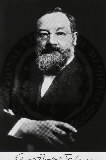The Psychology of Suggestion. By B. SIDIS. With an Introduction by W. JAMES. New York. D. Appleton & Co., 1898. Pp. x., 386. This book, which bears the secondary title "A research into the subconscious nature of man and society," falls into three parts dealing respectively with suggestibility, the self and society. Pt. i. gives a record of ingeniously devised experiments which, under a certain degree of mathematical torture, yield a quantitative formulation of normal suggestibility. A comparison of their results with hypnotic phenomena bring out the difference between normal and abnormal suggestibility: the former varies as indirect suggestion, and inversely as direct suggestion; the latter the reverse. Suggestibility at large varies as the amount of disaggregation, and inversely as the unification of consciousness. Pt. ii the most elaborate and least satisfactory portion of the work. The datum of psychology, we are told, is the moment-contents forming the psychic concomitant of the activity of the single nerve cell. Functional-association of cells is paralleled by synthesis of consciousness. We have, first, desultory consciousness, the psychic life of the lowest invertebrates. Then comes reproductive, or synthetic consciousness, which is instinctive, impersonal experience. Above this stands recognitive consciousness; memory still without personality, the mentality of the higher vertebrate animals. All these three stages are stages of the subconsciousness. Now we rise to desultory self-consciousness, serial or discontinuous personality. Next in order follows synthetic self-consciousness, "represented by man's mental activity"; and finally, we reach, in the eternal moment of self-consciousness, the hypothetical perfect person. The subconscious self, looked at as a whole, is "essentially a brutal self". Indeed, it is not a 'self' at all, but merely a consciousness; it has no personality; it is stupid, uncritical, non-moral, associative—everything that the true personality is not. It is not probable that the 'normal' psychologist will accept that classification. We may grant all that can be granted to the current theory of mental "dissociation" or "sejunction" and its cellular parallel, but we may not ignore the established facts of mental mechanics. The author seems hardly to realize that normal psychology exists outside of Professor James' two volumes, which themselves interest him more in their discussion of the abnormal than the normal mind. The consequence is an entire failure to see his problem in perspective. A knowledge of experimental literature would have helped him very considerably in part i; similar knowledge would have shown him the difficulties and inadequacies of the view he has put forward in part ii. Normal psychology has a good deal to say about the mechanism of memory, of recognition, of impulse, of association, as genetic psychology has about the relation of 'lower' minds to 'higher'. You cannot get the adult human mind out of the cell mind by a merely additive aggregation, even if you declare your conviction (in a footnote) that "the very nature of mental activity is synthesis". Nor can you replace the work accomplished through analytic introspection by a list of subconscious states: "hypnotic, somnambulic, hypnonergic, hypnoid, hypnoidic, hypnoidal, hypnoleptic," however long you make it. It is the old mistake: the author takes his pathological literature and pathological cases as things apart, and works them over with great pains and ingenuity, arriving at little or no result of general validity for the simple reason that normal psychology, the legislative science, is left out of account. Part iii is written in lighter vein. It gives a slight historical sketch of social epidemics, stampedes, social crazes, from the first Crusade to the present time, and draws certain conclusions as to social suggestibility, with empirical reference to American society. "American society oscillates between acute financial mania and attacks of religious insanity. . . . [It] seems to suffer from circular insanity." Dr. Sidis writes vigorously, with the full courage of his convictions. He makes definite contributions to mental pathology, and sets many old facts in a new light. The book is concerned with matters that appeal both to the psychologist and to the neurologist, and would, undoubtedly, have got itself discussed though it had lacked Professor James' introduction. But the presence of such an introduction, even from so eminent a psychologist, cannot compensate for lack of psychological knowledge on the part of the author. And lack of comparative knowledge, want of perspective, is the weakness of the book.
|

